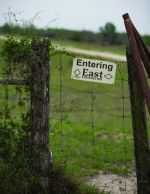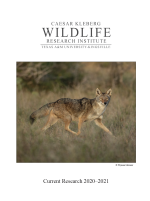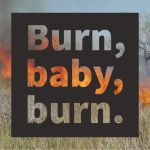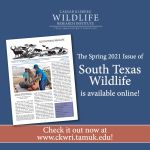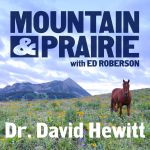
All News
Caesar Kleberg Wildlife Research Institute (CKWRI) is honored to work alongside East Foundation on a wide variety of research projects, and we are grateful for our partnership over the last 12 years. “This partnership exemplifies the trust the Institute has among private landowners, and it’s because of relationships like this, our scientists are empowered to conduct applied research that helps landowners meet their wildlife and conservation goals” said David Hewitt, Executive Director of CKWRI.
CKWRI Research Partner: East Foundation
Thanks to a generous gift from Bobby and Sherri Patton, the Patton Center for Deer Research (PCDR) has been established at the Caesar Kleberg Wildlife Research Institute (CKWRI). Patton, an avid outdoorsman and dedicated conservationist created the Patton Center for Deer Research that will strengthen wildlife research education at Texas A&M University-Kingsville through the Caesar Kleberg Wildlife Research Institute.
Caesar Kleberg Wildlife Research Institute is grateful for the tremendous ongoing support that we receive from a variety of sources. There is a special group of contributors that we recognize as "Research Partners" as they have provided instrumental backing of our research and therefore have helped make the applicable science that we are so proud to offer possible. We want to thank all of our Research Partners, and will begin by sharing the story of the Robert J. Kleberg, Jr. and Helen C. Kleberg Foundation as our first "Research Partner Spotlight".
Whether you are interested in WILD CATS, DEER, QUAIL, WATERFOWL, WILD TURKEYS, or HABITAT RESTORATION, you'll want to check out CKWRI's 2020-2021 CURRENT RESEARCH REPORT now available online! Click HERE below to view it now!
In this recent publication, researchers found that the application of prescribed fire on tanglehead-dominated areas can increase cattle utilization by up to four times in addition to improve native plant species richness, providing foraging and brood-rearing areas for northern bobwhite while maintaining adequate nesting cover. The benefits of prescribed burning lasted for over a year in our study.
The distinguished alumni awards are presented each year to the most prestigious graduates of Texas Tech for their professional achievements, contributions to society and support of the university. Nominations are submitted by members and friends of the association, as well as Texas Tech faculty and staff, while a committee comprised of alumni and university officials reviews the nomination materials and makes the final selections.
The Caesar Kleberg Wildlife Research Institute has the opportunity to award annual scholarships to Institute graduate students and Range and Wildlife Management undergraduate students who have demonstrated outstanding academic and professional excellence in their progress towards attaining either an advanced degree (M.S. or Ph.D.) in range and wildlife management or a bachelor’s degree in range and wildlife management.
*Applicants will be considered for all scholarships. No need to apply for a specific scholarship.
Click the link below to read the full article.
Click here to read it now!
CKWRI's Executive Director, Dr. Dave Hewitt, was recently interviewed by Ed Roberson on the top-ranked Mountain & Prairie podcast! Recognized by the Aspen Institute, Apple Podcasts, High Country News, Colorado Parks and Wildlife, the Montana Governor’s Office, and more, Mountain & Prairie features long-form conversations with innovators of the American West. Visit the following link to listen now!
https://mountainandprairie.com/david-hewitt/
